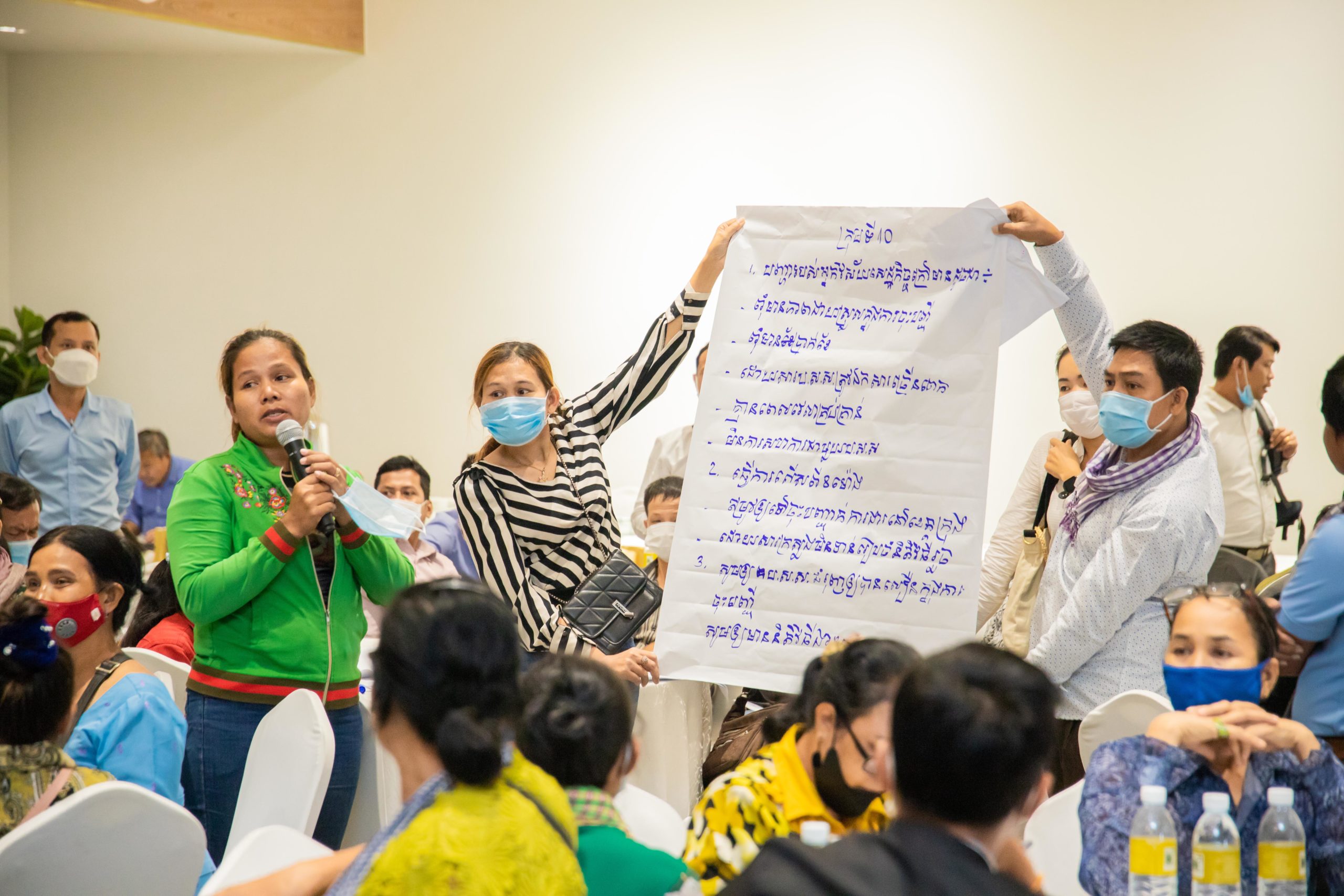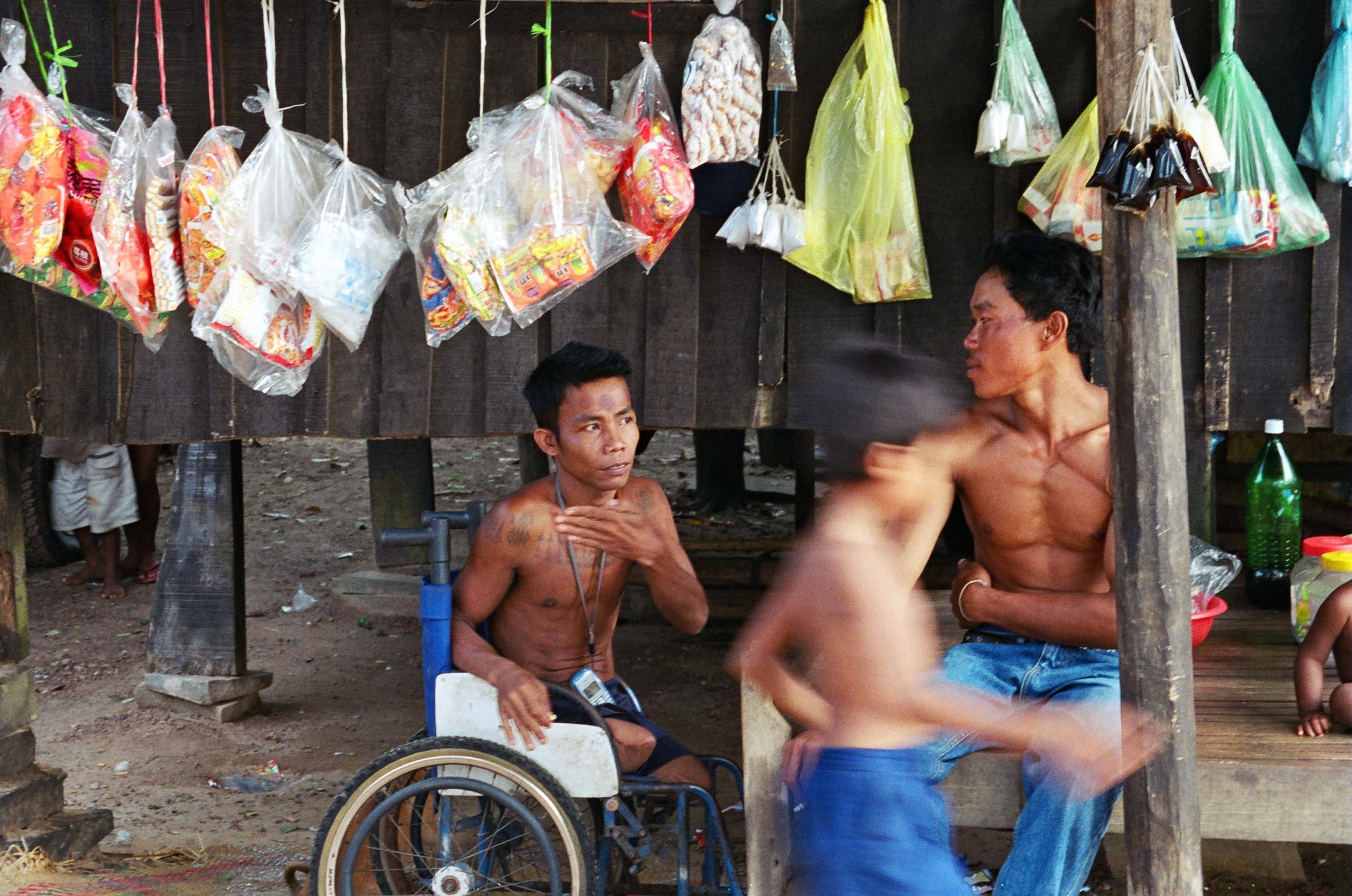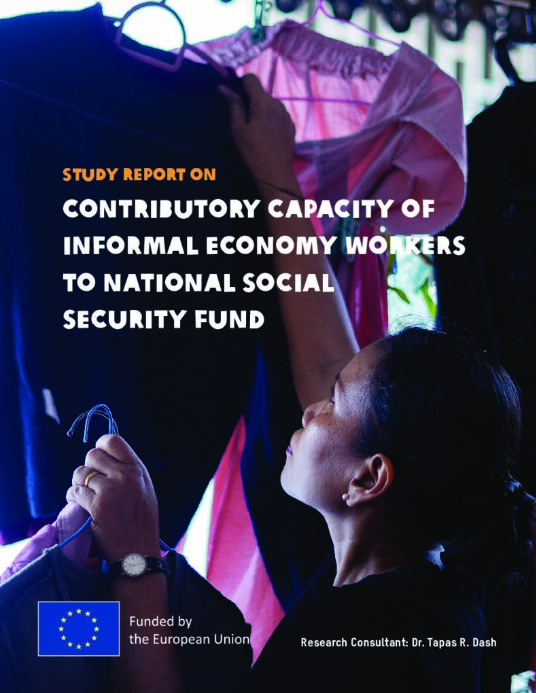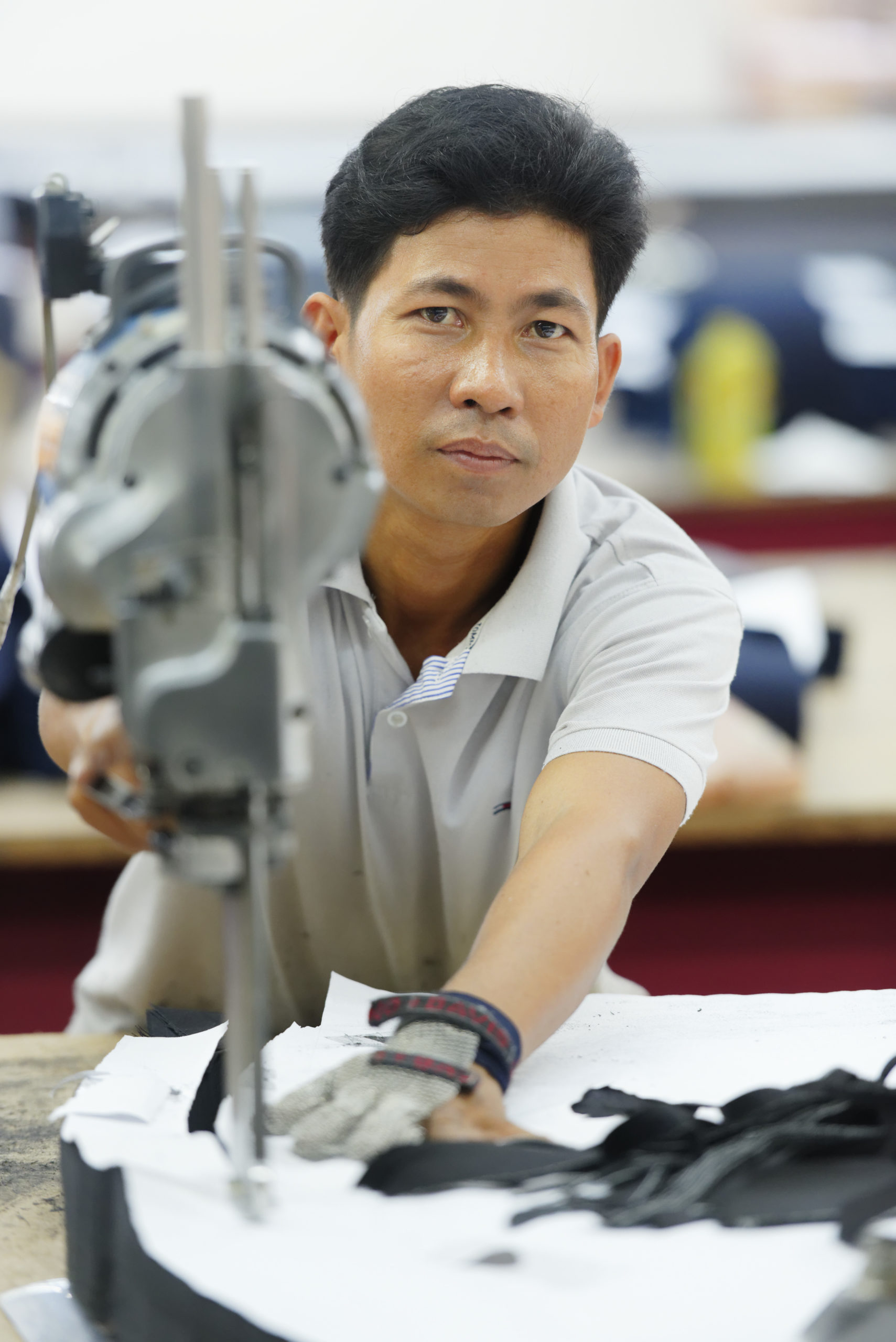Cambodia

Over 1.3 million workers in the private sector covered by new contributory pension scheme
The new scheme, launched in October 2022, ensures effective coverage of these workers in the events of old-age, incapacity or disability, survivorship, and death.

Nearly 18,000 female workers of the garment sector covered by temporary cash transfer
Women working on the garment sector who gave birth and were suspended from work due to COVID-19 were eligible for the temporary cash transfer, as well as for training on soft skills and OSH.
More than 230,000 persons with disabilities with better access to social protection
New Disability Identification Mechanism implemented in 25 provinces allowed more structured and easier access to social protection, social care and employment opportunities for PwD.
Key results achieved
- Delivery of social budgeting training in collaboration with the Asian Development Bank (ADB) and International Training Centre (ITC) of the International Labour Organization (ILO) for staff members from relevant departments of the Ministry of Economy and Finance (MEF), the Ministry of Social Affairs, Veterans and Youth Rehabilitation (MoSVY), the National Social Security Fund (NSSF), and the General Secretariat of the National Social Protection Council (GS-NSPC). The successful implementation of the training has led to increased interest from key stakeholders. Further training was planned to develop a Training of Trainers (ToT) model as well as budgeting and modelling tools to facilitate the use of evidence for Social Protection planning and increasing coverage.
- Technical guidance and capacity building to the Ministry of Social Affairs, Veterans and Youth Rehabilitation (MoSVY) strengthened results-based or programme-based budgeting at the national level and for 25 Provinces. The capacity-building efforts enhanced the budget submitted to the Ministry of Economy and Finance (MEF) by improving policy-budget links, including programme targets and indicators supporting evidence-based reporting on budget execution. A manual for MoSVY budget formulation and implementation was developed.
- The National Social Protection Council approved the Family Package Policy document (comprehensive concept note) in December 2021. The programme design was finalised, with the Family Package Sub-decree endorsed by the Royal Government of Cambodia in 2022. The Family Package roll-out, concluded in early 2023, replaced the COVID-19 Cash Transfer Programme for the Poor and Vulnerable, implemented in June 2020.
- The first wave of the Disability Identification process, designed during the project’s first year, has been completed in 25 Provinces, with over 240,000 persons with disabilities identified by the Ministry of Social Affairs, Veterans and Youth Rehabilitation. An estimated 30% of this group have been registered in the Identified Poor (ID Poor) social registry and became eligible to access the cash transfer programmes with the rolling out of the Family Package of integrated social assistance programmes. Other persons with disabilities improved access to the care, assistance and labour-activation programmes. The disability identification tool resulted from a massive investment in the delivery mechanism, including the Disability Management Information System (MIS) and the capacity building of 1,640 communes aiming to ensure national coverage of the on-demand national mechanism.
- A Social Protection training curriculum has been developed in collaboration with the GS-NSPC and MoSVY. The central-level training was piloted to include key government officials and the National Institute of Social Affairs (NISA), and the Training of Trainers to deliver sub-national training package. The training packages have been envisaged to be delivered as stand-alone and/or added to the ongoing training on the operational aspects of the existing social assistance programmes covering 1,640 Communes, 204 districts and 25 Provincial administrations.
- Representatives from 19 civil society organisations and Trade Unions were invited to a consultation workshop on the draft Social Protection Law. Participants commented on more than 30 out of nearly 100 articles, considering accessibility, inclusiveness, clarity and transparency of the draft law and their experiences and understanding of the constituents’ needs. The remarks and proposals for improvements were submitted to the General Secretariat of NSPC for their consideration.
- Direct technical assistance has been provided to GS-NSPC and MoSVY to design the COVID-19 Cash Transfer Programme for ID Poor households – which currently covers over 680,000 families – and the Wage Subsidy for Garment and Tourism, which provide suspended workers in these sectors with a minimum subsistence wage. The service included engagement on the design of the benefit options and their costing. The technical assistance provided for the Management Information System (MIS) development has contributed to the COVID-19 Cash Transfer MIS module.
- The CSO-Trade Union network, representing formal and informal workers, farmers, women, persons with disabilities, the elderly, and youngsters, was further consolidated and extended to about 30 active members. This network gained more visibility and recognition at the level of the stakeholders and is already occasionally solicited for their inputs and views. It will become a coordinating body for civil society to position themselves on social protection policy development, including Public Finance Management for social protection.
- Capacity building on Public Finance Management was initiated, generating a keen interest among the members to look more closely into the budget cycle. In the second half of 2021, this component started with the “SP4ALL” (Social Protection for All). This overarching national network can act as a vector for coherent civil society engagement on various challenges concerning social protection policy development in Cambodia, including public finance management for Social Protection.
- Importantly, some members of the CSO-Trade Union network were nominated to become active in the newly established Development Partners Coordinating bodies on social assistance, employment-based social security and social health protection. Moreover, the Global Coalition for Social Protection Floors representative will become a member of the overall Development Partners Coordinating group. In the event the candidacies are confirmed, the formal coordinating groups have the potential to play a role in civil society consultation on policy development, backed up by the network. This way, it will become an important venue for civil society engagement on public finance management for social protection.
Resources
Events
- Social budget e-learning from October to December 2020
- Informal economy worker protection Forum (July 2022): Articles published: Cambodianess (in English); VOD (in Khmer); PNN TV (Khmer); PHnom Penh Post (English); Oxfam website (in English).
Project partners
The project is implemented jointly by the ILO, UNICEF, the Delegation of the European Union office in Phnom Penh, the Royal Government of Cambodia – through the General Secretariat of the National Social Protection Council (NSPC), the General Departments of Budget (GDB) and Planning (GDP) of the Ministry of Economy and Finance (MEF), the Ministry of Social Affairs, Veterans and Youth Rehabilitation (MoSVY), the Ministry of Labour and Vocational Training (MoLVT) and the National Social Security Fund (NSSF) – as well as the social partner and the Global Coalition for Social Protection Floors, represented in Cambodia by Oxfam.
Contacts
Mr. Nuno Cunha, ILO Senior Social Protection Specialist, cunhan@ilo.org
Mr. Koh Jie Yue, ILO Social Protection Officer, koh@ilo.org
Mr. Heng, Sokgech ILO, heng@ilo.org
Mr. Erna Ribar, UNICEF, Social Protection Officer, eribar@unicef.org
National Forum on social protection for wokers in the informal economy, July 2022

Workers in the informal economy presented their challenges – National Forum, July 2022
Workers in the informal economy presented their challenges – National Forum, July 2022
Workers in the informal economy in Cambodia
A factory worker during her shift in a footwear manufacturing plant in Cambodia
A cutting operator working in a garment factory in Cambodia





